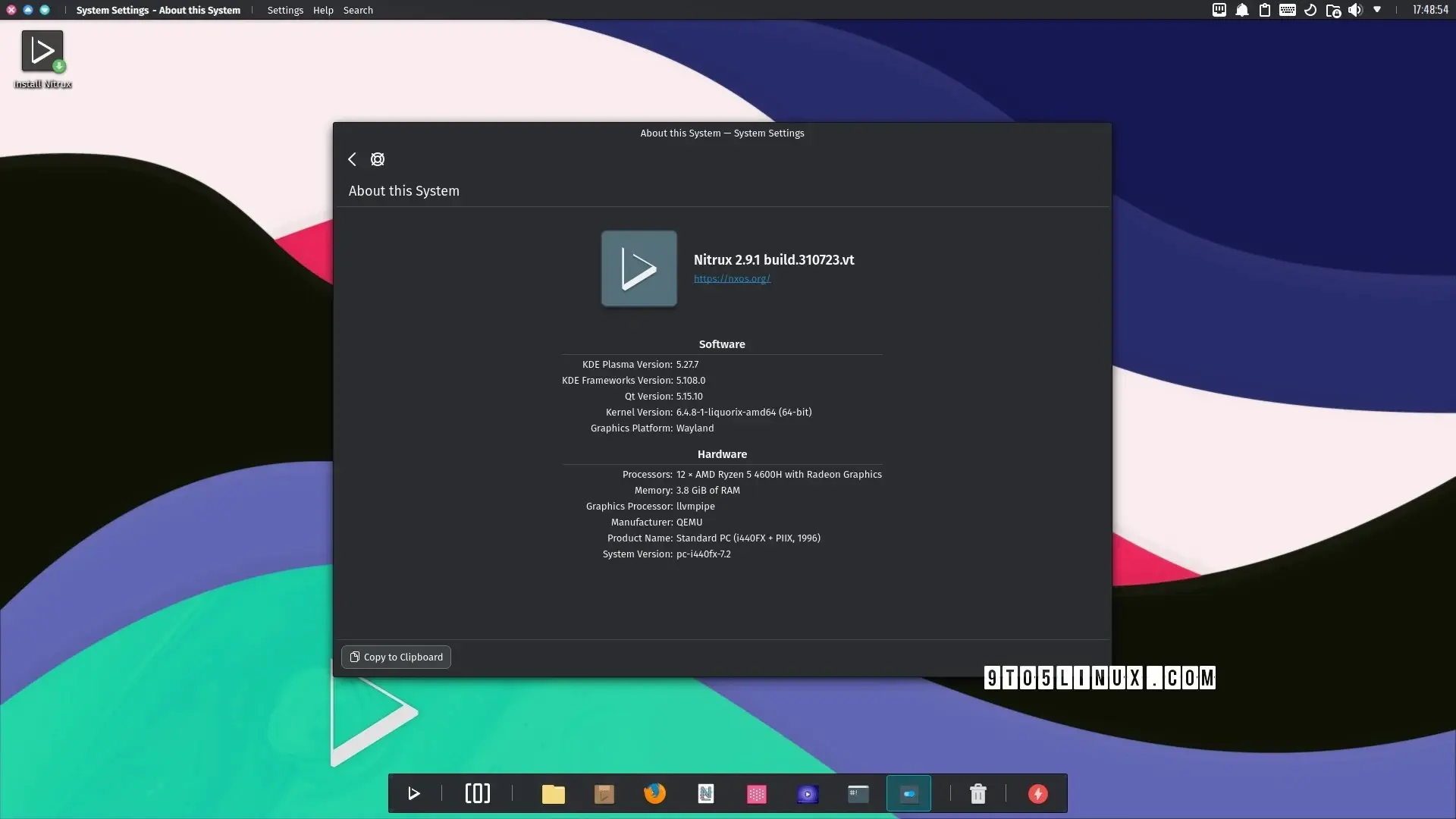- cross-posted to:
- linux@lemmy.ml
- cross-posted to:
- linux@lemmy.ml
Nitrux uses OpenRC instead of systemd, unlike most mainstream distros. It also features the Liquorix kernel, described as “an enthusiast Linux kernel designed for uncompromised responsiveness in interactive systems, enabling low latency in A/V production, and reduced frame time deviations in games.”
New in this release is kboot, a utility to switch kernels on-the-fly without needing a reboot, and VMetal, which allows users to run Windows in parallel to Nitrux to provide users of access to Windows software.



Technically speaking, OpenRC doesn’t really have any benefits in the real world, some people may claim faster boot times, but that’s debatable on modern hardware. In fact objectively, it’s inferior to systemd in many ways.
The real advantage though is that it’s pretty simple and easy to use, understand and maintain. It follows the Unix philosophy of “do one thing, and do it right”. People who like to have full understanding and fine control over their systems would prefer using OpenRC or similar init systems (with a mix-and-match of other utilities and daemons as per their need), instead of relying on a giant monolothic package like systemd which keeps getting bloated with more and more “unnecessary” features with each release.
Basically, you can say that it’s a difference of ideology.
Systemd is not monolithical, it just happens that it’s made of elements optimized to work well together, instead of running everything through different text parsers when “mixing and matching” random daemons.
I know, which is why I used the word “package” and not “binary”. ;)
The thing is, it’s neither. You can split the package into multiple pieces, you can replace each of them with whatever you want, the only difference is that instead of serializing-deserializing through plain text, the modules pass full objects so you may need to add a translation layer for the traditional tools pushing serial text.
It’s more like the debate between sh and PowerShell/JSON/XML/etc. Some like to grep and cut things, some prefer to address object properties. Some like plain text logs, some prefer compressed binary object logs.
Both come with their pros and cons, but in practice either can be tinkered with and controlled to the same degree.
You called it “bloated” which makes it sound you like you did not know that.